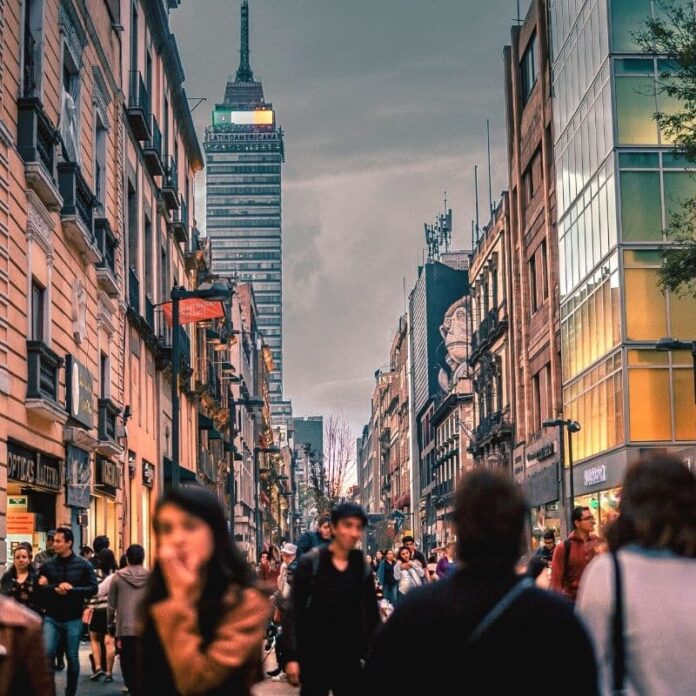When remote work became a thing in 2020, Mexico City was a hotspot for American workers, in part because of good weather and more lax COVID policies.
Today, many of those “digital nomads” are staying put and are turning into long term renters and homeowners. Now there are concerns about how this influx of foreign purchasing power is affecting the cost of living for locals.
In September 2022, Brady Jackson arrived in Mexico City with nothing but a backpack, his laptop and a few weeks booked at an Airbnb.
“It just seems like a simpler life here,” Jackson said.
Jackson ended up staying for 6 months, and returned again this summer.
“Everybody is so much more kind, laid back, more family-oriented,” he said.
Open Hub Coworking in Mexico City’s trendy La Condesa neighborhood, one of the many businesses catering to the growing digital nomad community. (Grace Heerman)
Lots of Americans have the same idea. In 2022, the city issued nearly twice the number of temporary residency permits to Americans as it did in 2019. And that’s changing the city. Stephania Arenal Zamudio owns an apartment building in the historic city center.
“The rent before the pandemic and after the pandemic — now it’s double,” Zamudio said.
Mexico City’s leaders see this as an opportunity. Last November, the mayor announced a partnership with Airbnb to promote the city as a “capital for creative tourism.” It loosens vacation rental regulations and encourages tourists to book long term stays.
Rosalba González Loyde studies urban sociology and is a professor at the National Autonomous University of Mexico. She says the tourism influx isn’t actually benefiting locals.
“There are many cases where local landlords haven’t allowed tenants to renew their leases, or simply evicted them, and then months later, the unit becomes an Airbnb,” Loyde said.
According to Loyde, tourism profits mostly benefit people already at the top, and create problems for lower income residents.
“We do not have land regulation policies, so when land values increase, the only ones who benefit are the owners of that land,” she said.
Property owner Stephania Zamudio said that when Americans move into a neighborhood, the city might increase police presence to make it feel safer. And that’s good for her tenants. But many locals get priced out and that puts landlords like her in a hard place.
“Obviously I want to have more money,” she said. “But I understand the other people who say, oh my God, I live here for 10 years and now I need to move to another far place.”
For now, Zamudio is trying to keep rents as affordable as possible for local residents while still trying to turn a profit as her city changes.
Source: Marketplace






